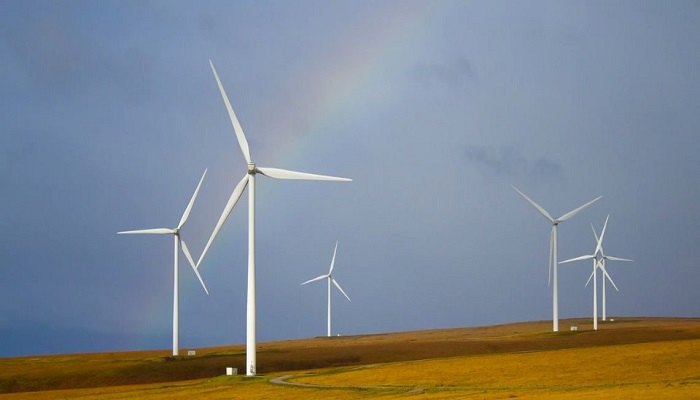Germany is all set to leverage the momentum gained in recent months to make meaningful progress when it comes to wind and solar power installations and also become less reliant on fossil fuels by 2030. The statement comes from none other than the Chancellor of Germany, Olaf Scholz. He added that by 2030, 4 to 5 onshore wind turbines would be installed.
The largest economy in Europe is making huge strides towards its energy transformation and climate goals; however, wind and solar power development remain inadequate. When asked about his opinion on last year’s poor wind sector additions, Olaf told Bild in an interaction that his government is indeed dealing with this issue with military precision.
It is well to be noted that an onshore wind law was already passed last year and has in fact gone into effect.
Scholz stated that the cabinet is drafting a timetable with deadlines for installing new capacity in order to meet the 2030 goals. He predicted that by 2030, there would be four to five onshore wind turbines operating daily on average.
The segment’s aim is 115 GW, up from the current total onshore installations of 58 GW. Germany added only 2.4 GW on land last year, but this was 25% more than in 2021. By 2032, a total of 2% of the land must be earmarked for wind farms, according to new legislation.
Scholz is committed to capitalising on the momentum gained in recent months to make substantial progress in solar and wind development and reduce reliance on natural gas, oil, and coal. He stated that high-ranking officials from all 16 federal states would meet once a month to look into and enhance expansion rates.
Based on the German Solar Association – BSW-Solar, solar power capacity will expand by 28%, or 7.2 GW, to 66.5 GW in 2022. The target for 2030 is 215 GW. Photovoltaics accounted for 12% of total electricity output. According to a recent report from SolarPower Europe, Germany gained 7.9 GW last year and will continue to be the largest solar market in 2022, with a total capacity of 68.5 GW.
As per the German Association of Energy and Water Industries and EY, the country requires EUR 600 billion in investments to meet its 2030 energy transformation goals. Significantly, Germany intends to achieve carbon neutrality by 2045.





































